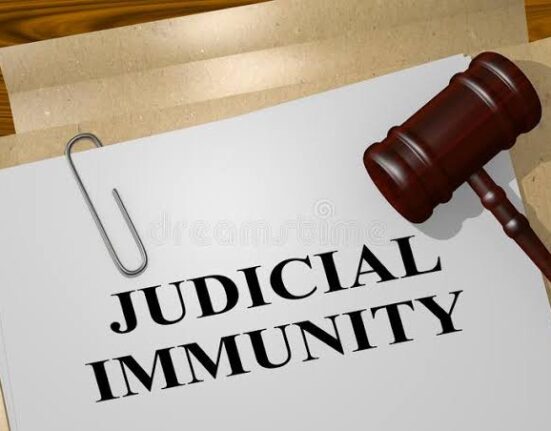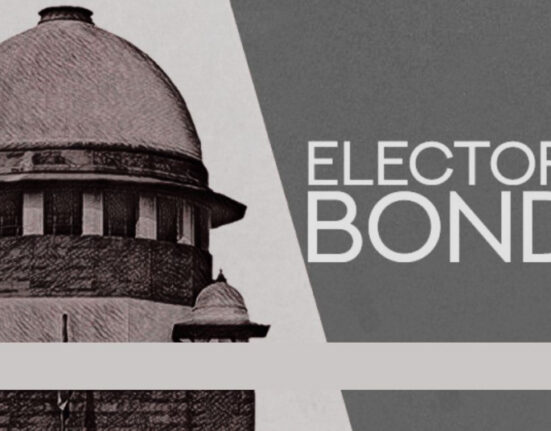This Article deals about the power of governor, duties and other function: The powers of the Governor are analogous to those of the President with certain significant differences. The President is elected to his office, while the Governors are appointed by the President and hold office during his pleasure.
INTRODUCTION: WHO IS A GOVERNOR
Government at the State is the same as that for the Union, that is, a Parliamentary system. The head of the states is called the Governor, who is the constitutional head of the state as the President is for the whole of India.
The Governor is usually a distinguished elder states man, who can discharge his rather perfunctory duties with dignity and who is on a position to exercise what Gandhi called an “all pervading moral influence”.
The Governor of a state has a dual role to play–
- One, as the constitutional head of the state and
- Second, as the agent or representative of the centre.
As per Art. 157, no person shall be eligible for appointment as Governor unless-
- he is a citizen of India and
- has completed the age of 35 years
Important Points about governor under Constitution
- The Governor of a State shall be appointed by the President by warrant under his hand and seal [Art.155].
- Subject to the pleasure of the President, he shall hold office for a term of 5 years and on the expiry of such period continues to hold it until his successor enters upon his office.
- The appointment may terminate either upon dismissal by the President or on resignation addressed to President by the Governor. [Art.156].
- The Governor shall not be a member of either House of Parliament or of the Legislature of any State and if any such member is appointed as Governor, his seat as such member shall be deemed to have been vacated on the date on which he enters upon his office as Governor.
- He shall not hold any other office of profit.
- He shall be entitled without payment of any rent to the use of his official residence and shall also be entitled to such emoluments, allowances and privileges as may be determined by Parliament by law, and, until provision in that behalf is so made, such emoluments, allowances and privileges as are specified in the Second Schedule of the Constitution.
- The emoluments and allowances of the Governor shall not be diminished during his term of office. [Art.158]
THE DUTIES OF GOVERNOR OF A STATE
The powers of governor of a state in India are listed below:
- It is the duty of the Governor that the Government should function according to Constitution.
- He may recommend to the President for President’s rule in the State and, according to Art. 356, “If the president, on receipt of a report from the Governor or otherwise is satisfied that a situation has arisen in which the Government of the State cannot be carried on in accordance with the provisions of this Constitution, he may issue a proclamation. By that proclamation the President may assume to himself all or any of the powers vested in or exercisable by the Governor or anybody or authority in the State”.
- The Governor is to report to the President that a situation has arisen in which the Government of the State cannot be carried out in accordance with the provisions of the Constitution. Such a report may sometimes be against a Ministry in power, for example, if it attempts to misuse its power to subvert the Constitution. It is clear that in such casa, the report cannot be made according to ministerial advice. Moreover no such advice will be available where a ministry has resigned and another alternative ministry cannot be formed. Thus, in making report to the President under Art. 356, the Governor exercises his discretion.
- The Ministers of the State hold office during the pleasure of the Governor. The fact that each holds his office at the Governor’s pleasure indicates that his office is at all times at the Chief Minister’s disposal, for in these matters the Governor, like the King in England, acts on the advice of the Chief-Minister. Moreover for the effective realisation of the rule of Collective Responsibility of the Council of Ministers it is necessary that no person should be nominated to the cabinet except on the advice of the Chief Minister. Secondly no person should be retained as a member of the cabinet if the Chief-Minister says that he should be dismissed.
- The Governor in terms of Article 156 of the Constitution holds office during the pleasure of the President.
Dissolution of the Legislative Assembly(Art. 174)
The Governor summons, prorogues and dissolves the Legislative Assembly. In normal circumstances the Legislative Assembly is not dissolved by the Governor, till the expiry of its normal tenure of five years. But where ministry has lost the majority and no alternate stable ministry is possible, he may dissolve the House.
The Governor is not bound to accept the advice of the defeated Ministry to dissolve the house. In this case he can act according to his discretion. He may or may not dissolve the House. Thus it is clear that the Governor can dissolve the Legislative Assembly in his discretion. Therefore the Governor has constitutional power in dismissing a Council of Ministers on his subjective satisfaction that the Government has lost its majority in the Legislative Assembly and he can very well invite any person to form the Government.
According to Article 164, the ministers shall hold office during the pleasure of the Governor. This does not mean that the Governor can dismiss his ministers at any time at his sweet will. The expression ‘during the pleasure‘ under a Parliamentary form of Government means the confidence of the majority in the Legislature. He is to exercise his pleasure in accordance with the advice of the Council of Ministers. This follows from the provision in Article 164(2) which makes the Council of Ministers collectively responsible to the Legislative Assembly of the State. This means that till a ministry enjoys the confidence of the majority in the Lower House, the Governor should not dismiss it.
THE POSITION OF THE GOVERNOR IN RELATION TO HIS COUNCIL OF MINISTERS
In general, the relation between the Governor and his ministers is the same as that between the President and his ministers, with this important difference that ,while the Constitution does not empower the President to exercise any functions ‘in his discretion’ it authorises the Governor to exercise some functions ‘in his discretion’. [Article 163(1)].
In the exercise of his discretionary pourers the Governor is not required to act on the advice of Chief Minister or even to seek his advice. The Constitution does not define as to what are the discretionary powers of the Governor. This raises an important question whether the Governor like the President is merely a constitutional head or whether he has some real powers. This suspicion is however unfounded in view of the Parliamentary system of Government adopted in the Constitution. When a Cabinet, collectively responsible to the Legislature, is to give advice to the Governor in the discharge of his functions, occasions are almost non-existent from him to act contrary to the advice of the Cabinet.
In the time of crisis, the Governor can effectively and constitutionally utilize the provision and act in his discretion particularly in cases where there might be a conflict between the Governor and his Council on any issue. In view of the responsibility of the Governor to the President, one of the act that “the Governor’s decision as to whether he should act in his discretion in any particular matter is final”, it would be possible for the Governor to act without the advice of his Cabinet even though they are not specifically mentioned in the Constitution as discretionary functions.
Thus the Governor may exercise, in exceptional circumstances his own discretionary powers in—
- The appointment of the Chief Minister ;
- the dismissal of Ministry ;
- the dissolution, prorogation and suspension of the Legislative Assembly; and
- advising the President for the proclamation of emergency.
POSITION OF THE GOVERNOR IN RELATION TO THE PRESIDENT
The powers of the Governor are analogous to those of the President with certain significant differences. The President is elected to his office, while the Governors are appointed by the President and hold office during his pleasure and may be dismissed from office by him whereas the President may be removed from office only through impeachment.
The President addresses his resignation to the Vice-President. The term of office is the same for the President as for a Governor. The oath of office is more or less alike, but not identical.
The Powers of Governor can be discussed under the following four heads–
1) EXECUTIVE POWERS OF GOVERNOR
- The executive power of the State is vested in the Governor to be exercised by him either directly or through the officer’s sub-ordinate to him [Art. 154].
- All executive actions of a State shall be expressed to be taken in his name [Art.164]
- The executive power of a State shall extend to matters in respect to which the Legislature of the State has power to make laws.
- In any matter with respect to which both the Legislature of a State and Parliament have power to make laws & if it is a matter mentioned in the Concurrent List, the executive power of the State shall be subject to and limited by the executive power conferred by the Constitution or by any law made by Parliament upon the Union or authorities thereof. [Art. 162]
- The Government appoints the Chief Minister and other Ministers on his advice, and the Council of Ministers hold office during his pleasure but the Council of Ministers is collectively responsible to the State Legislature or to the Lower House of such Legislature where the
2) LEGISLATIVE POWERS OF GOVERNOR
- Legislature consists of two Chambers. This makes the Governor constitutional head like the President and determines the character of’ State Government of Executive as a Parliamentary Government of Executive.
The most important Legislative power or the Governor is his ordinance making power, This Ordinance making power is similar to that of the President. Under Article 123, whenever the Legislature is not in session and if the Government is satisfied that circumstances exist which require him to take immediate action, he may legislate by Ordinance, however the Governor cannot issue an Ordinance without previous instruction from the President in case in which–
- Bill would have required his previous sanction, or
- required to be reserved under the Constitution for the assent of the President.
3) FINANCIAL POWERS OF GOVERNOR
A money bill cannot be introduced in the Legislative Assembly of the State without the recommendation of the Governor. No demand of grants can be made except on the recommendation of the Governor. The Governor is required to cause to be laid before the House or Houses of the Legislature the annual financial statement, known as Budget.
4) JUDICIAL POWERS OF GOVERNOR
The Governor of a State is empowered to grant pardon, reprieve, respite, or remission, of punishment or to suspend, remit or commute the sentence in respect of any offence against any law relating to a matter to which the executive power of the State extends. [Art. 161].
The power of granting pardon under Article 161 is very wide and does not contain any limitation as to the time on which and the occasion on which and the circumstances in which the said power could be exercised. But the said power being a constitutional power is subject to judicial review on certain limited grounds. The Court, therefore, would be justified in interfering with an order passed by the Governor in exercise of power under Article 161 of the Constitution, if the Governor is found to have exercised the power himself without being advised by the Government or if the Governor transgresses the jurisdiction in exercising the same or it is established that the Governor has passed the order without the application of mind or the order in question is a malafide one or the Governor has passed the order on some extraneous consideration.
Governors do not have diplomatic, military and emergency powers which the President has. The Governor of Assam has certain discretionary powers in tribal affairs in which he is not required to act according to the advice of his Ministers.
The President also has certain discretionary powers. The executive powers of the Governor is subject to and limited in some respects by the executive power of the President to whom the Governor is required to report situation requiring the proclamation of emergency.
The President and the Governors have all got the power to veto legislation by withholding their assent to it.
![]()







Leave feedback about this